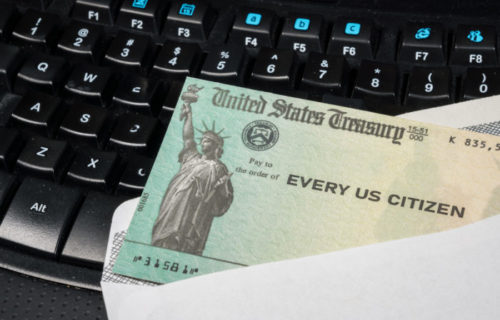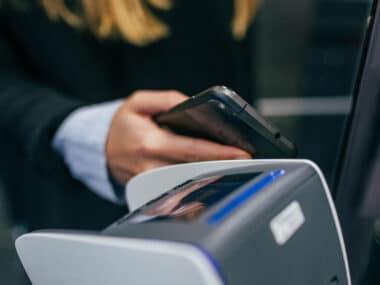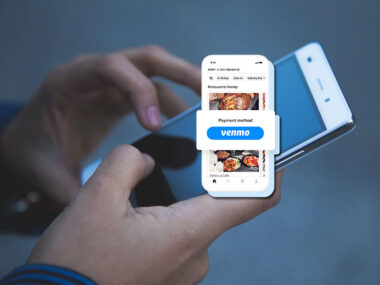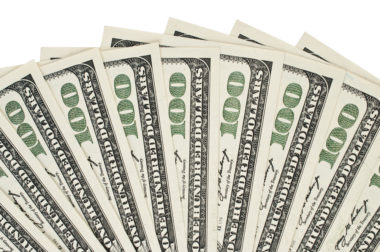The COVID-19 pandemic has had negative financial impacts on people all over the world. Not only has coronavirus cancelled travel plans, it’s also resulted in widespread job loss and mental health issues. As the virus continues to be a threat, employment, education, and other important societal foundations are being affected in different ways.
To combat these negative effects, the federal government began to release Economic Impact Payments to Americans who qualify. You’ll receive a $1,200 payment if you’re a U.S. citizen or U.S. resident alien who earned $75,000 or less in tax year 2019. If you made more, you may still be eligible for a reduced payment.
When you receive this payment from the federal government, it’s important to have a plan in place for how you’ll use these funds. With an unpredictable virus affecting the economy, your Economic Impact Payment may be crucial for keeping you and your family financially stable. Reviewing the different ways you can wisely use this payment will help ensure you make the right decision to benefit your financial situation now and in the future.
Table of Contents
1. Spend Smartly
Before spending your stimulus check, review your finances and the status of your debts. If you’re worried about your monthly income, it’s tempting to use your payment to ensure you keep up with your mortgage or student loan debts.
While this is a responsible choice, keep in mind that many lenders are allowing you to skip paying your mortgage for a short period of time. While these lenders cannot start the foreclosure process, you’re required to make the payments you skipped at a later time.
The Coronavirus Aid, Relief, and Economic Security (CARES) Act requires landlords of federally backed properties to provide 120 days of eviction relief for tenants. Eviction notices cannot be sent solely for nonpayment until after July 25, 2020.
If you have a federal student loan, your payment responsibilities have also been paused for the time being. If your loan is eligible, you’re automatically placed in an administrative forbearance through September 30, 2020, meaning you’re not required to make your monthly payment. If you’re struggling financially due to the pandemic, keep this legislation in mind and consider holding onto your stimulus payment to cover your living expenses or more imminent financial obligations.
2. Take Care of the Essentials
The government issues Economic Impact Payments to the public to assist in covering essential expenses during this difficult time. When you receive your stimulus payment, it’s important to address these essentials, especially if your financial situation has been affected by the pandemic.
Use your payment to handle expenses during COVID-19, such as utility or phone bills. Since you and your household members are more than likely spending more time at home, you may see an increase in utility usage and higher grocery bills. Your stimulus check may help offset these costs so you can stay on budget.
3. Reduce Your Debt
If your essential expenses are taken care of and you feel financially stable, consider using your stimulus payment to reduce debt. Depending on your situation, an extra $1,200 may completely eliminate your debt or it may not even put a dent in it. However, paying off your debt is crucial to your current and future financial situation.
Address your high-interest debts first, such as credit card balances. When you lower these debts, you also lower how much you’ll pay in interest. By using this extra money to chip away at your debt, you’ll find it easier to save for retirement and address other expenses you incur.
4. Invest It
If you don’t have debt you need to pay or you’ve paid it off already, consider investing your $1,200 stimulus check. When you invest this money, it’ll grow faster than if you spend it or put it in a savings account. You may choose to invest your money in a startup business or purchase real estate. You could also invest in stocks for potential long-term profit.
The coronavirus is causing swings in the market, which can affect your current retirement account balance. Whether you have a personal retirement savings account or a savings plan through your employer, investing your payment in retirement will help boost your balance.
While the market appears strained now, your long-term plans shouldn’t be affected by current market trends. Planning for your future by investing your money is a smart way to ensure you’re using it to benefit your future.
5. Create an Emergency Fund
The COVID-19 pandemic has caused economic turmoil for many, so it’s important to feel financially stable and ready for anything. If your essential expenses are covered, consider using your $1,200 check to start an emergency fund or build upon one you already have.
You never know what life will throw at you and an expensive home repair or huge medical bill could spell financial ruin if you’re not adequately prepared. An emergency fund is a financial safety net that keeps you from going into debt over one of these unexpected expenses.
6. Support Local Businesses
The pandemic forced many small businesses to cease operations for months. While some businesses may survive this economic downturn, others will struggle to re-open their doors when it’s safe to do so. If you’re in a position to use your stimulus check to stimulate the local economy, you’ll help these small businesses stay afloat.
By ordering take-out food, shopping at locally owned retailers, and buying local products, you’re supporting small businesses and their employees. This support may be what allows these businesses to survive the COVID-19 pandemic and eventually continue serving their communities.
7. Donate It
There are many charitable organizations doing all they can to help individuals who are being negatively affected by the pandemic. If you feel financially comfortable, consider donating your stimulus check money to a charity that’s helping fight COVID-19 or helping those struggling to get through it.
The CDC Foundation organizes hundreds of programs globally that streamline coronavirus testing and contribute to vaccine research. Feeding America is a nonprofit charitable organization that addresses food insecurities caused by the pandemic.
Frontline workers at hospitals put themselves at risk for contracting coronavirus every time they go to work. Donating your money to hospitals may help them purchase crucial equipment that keeps these workers safe. You could also donate your stimulus payment to friends or family members who have been directly affected financially by the pandemic.
8. Spend on Self-Care
Even if you haven’t contracted COVID-19, the pandemic may still negatively impact your health. Living through a pandemic is stressful and can take an emotional toll on your mental health. During a crisis like coronavirus, you’re more likely to experience anxiety and fear.
While these feelings are normal, it’s important to take care of yourself so you can remain healthy. Consider using your stimulus money on your own self-care, such as tele-counseling sessions, virtual exercise classes, or other activities that you know will keep you mentally and physically healthy.
Your coronavirus stimulus check is meant to help keep you financially stable during this unprecedented time. By spending your stimulus money wisely, you can invest in your future or help your community.
Image Source: https://depositphotos.com/





